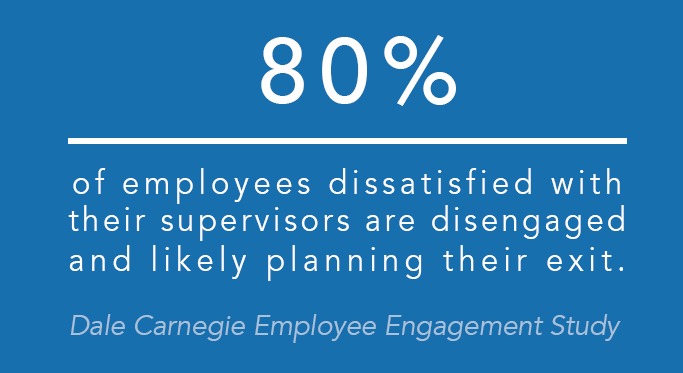Friendship
Retaining Top Talent and the Role of Exit Interviews
The ultimate goal of every organization is to retain their top talent. And yet, every company loses employees. The best organizations make understanding the reasons employees leave part of their strategic plan. They keep their eye on the ever-changing landscape of employee satisfaction and engagement, and when they see a trend toward the door, they take immediate action to stop the exodus.

Exit interviews can serve as an essential part of your organization’s strategy to reduce employee turnover. However, exit interview shouldn’t be the first conversation an organization has with their employees about their thoughts on the company. Before we talk about the elements of effective exit interviews, let’s take a quick look at other opportunities to obtain valuable insight from employees before they choose to leave.
Leading organizations know that retention practices start at the time of hiring and continue day-to-day until an employee’s last day on the job. Everyone in the organization should be keeping track of ongoing input regarding employee concerns and opportunities for improvement. Doing so means you should never be surprised by an employee’s reason for leaving your organization.
You have many excellent opportunities to invite input including one-on-one meetings, performance discussions, annual performance appraisals, focus groups, and employee surveys. Talent retention should be a continuous conversation.
Powerful questions to ask employees include:
- Why do you stay with the organization?
- What might make you consider leaving?
- What learning opportunities would help you be even more effective in your current job?
- What are your career goals and how can we support you in achieving them?
- How can we help you maintain a healthy work-life balance?
In addition to these questions, information gained from employee engagement surveys can provide you with valuable insight on changes you can make to ensure your best employees don’t leave to work with your competitors.
Now that we have established that an exit interview should never be the first conversation an organization has with an employee regarding his or her thoughts about the company, let’s consider the benefits of conducting exit interviews and what makes them effective if the need does arise.
three primary benefits of conducting exit interviews
Compilation of valuable, action-oriented data on why people are leaving and the opportunity to make strategic changes
Well-designed and administered exit interviews help you understand your employee’s perceptions about the work itself. This includes job elements, resources, working conditions, culture, and co-worker relationships. In addition, you have the opportunity to gain insight into strategic operations such as structure, systems, processes, policies and how adept your organization is at innovating and implementing change. You can also obtain valuable information about leadership effectiveness and what training and development initiatives could be put in place to further develop successful leaders.
Closure for employees, appreciation for their contributions, and goodwill
Exit interviews provide an excellent opportunity to thank employees and acknowledge their contributions and accomplishments. Exit conversations signal to employees that their perspective matters and can turn departing employees into company improvement consultants and ambassadors for your organization.
(Note: Exit interviews should be reserved for voluntary separations, because issues raised by layoffs and terminations for cause will require a special approach.)
Minimizing liability for your organization
Exit interviews help reduce the potential for lawsuits filed by exiting employees. Discuss the company’s and the employee’s rights and obligations following termination. Address unused paid time off, health insurance opportunities, non-compete clauses, and post-employment agreements. Ensure there will be no surprises after the employee separates from your company.
Conducting the Interview
Who should conduct the interview?
Interviews may be conducted by Human Resource professionals, an unbiased manager, or a trusted mentor. The interviewer must be well-versed in asking open-ended questions and listening to the answers. Regardless of the reason for the departure, employee separations are often emotional. Skilled interviewers will be adept at probing for the truth while at the same time remaining neutral and unemotional. The exit interview is not the time to fix a problem, although the interviewer may ask the employee for suggestions to resolve problems that surface. Use of an external third party interviewer is also a good option and will increase the likelihood that the interviewer will be well trained. Employees may also be more cooperative and transparent with an interviewer from outside the organization.
Make It “Mandatory”
Participation rates increase when employees understand that an exit interview is part of your employment practices and that all employees are asked to participate in one when leaving the company. Although you cannot legally require employees to participate, setting precedence will increase the likelihood that employees agree to be involved.
Make it Timely
Conduct your formal exit interview while the departing employee is still engaged; midway between the resignation notice and the departure date. Don’t wait until the employee’s last week of work, or even worse, their last day. At this point the employee has likely already checked out.
Make It a Conversation
The exit conversation should be conducted by someone of consequence in the employee’s career who can offer them a chance to reflect back on their job and experience with your organization. The “check-out” process, retrieval of company property, and benefits information can be cold and clinical. Although this process can be administered by HR, it is best to conduct this part of the process separate from the exit conversation.
Some employers begin the exit interview process with a survey. Survey data can provide a fast and easy way to obtain comparable data, but don’t rely solely on survey data. Some people may not be as frank if they believe they are leaving a written record. An unstructured interview can produce a broader range of responses, even though consolidating information is more challenging. Standardized interview questions make it easier to spot trends, but are less likely to elicit unexpected insights. By combining surveys with structured and unstructured interviews you will gain more in-depth information to help your organization take strategic steps to improve employee retention and engagement.
Make it Meaningful
You can enrich the feedback you receive by scheduling several interactions – an interview, a survey, a phone call—before and after an employee departs. Many experts advocate conducting one interview while the employee is still there and one a few months after departure.
Departing employees may to be more emotional than usual. Creating some space and giving them time to adjust to their new circumstances may give you an opportunity to solicit more forthright responses. In one study, 59% of former employees who answered a questionnaire mailed several months after their exit gave reasons for leaving that differed from those they’d offered during their initial exit interviews. And every employee who had initially failed to cite causes for leaving mentioned specific reasons on the questionnaire.
Make it Confidential
Inform employees that all identifying information will be removed from their comments before being shared with anyone in the office. The only exception is if they report legal issues, criminal behavior, sexual harassment, or acts of discrimination. Let the employee know you have an obligation to report these instances. Explain how your company will consolidate, share and take action on exit interview data. Think carefully about how to tactfully disseminate exit interview information, especially with regard to the interviewee’s candor about their manager.
Departing employees may be concerned about burning bridges or fear retribution. Encourage them to be as honest as they can, and help them understand that the purpose of the conversation is to assist the organization in learning what it does well and what it can do better to create an engaging environment where employees love to come to work.
Potential Interview Questions
Exit interview questions should uncover reasons for employee turnover as well as organizational strengths so your organization will know what it does well, and what needs improvement. Many employees accept another position before they announce their intent to leave their organization; consider asking about the new job, but not about how the two positions compare. The point is to gather benchmarking data about the competitive landscape. Valuable questions include:
- How do you feel things went here?
- What do you feel are the strengths of our organization?
- What suggestions do you have to improve our organization? Your job? Your work group?
- When did you realize you simply couldn’t work here anymore?
- What could we have done that would have stopped you from leaving?
- How does your new job fulfill your career goals?
- Under what conditions, if any, would you consider returning?
- Would you like us to stay in touch to let you know about future opportunities?
- What lessons will you take with you from your time here?
- Do you have any other suggestions that would help us build a more engaging culture?
Putting Your Data to Work
The main reason exit interviews fail to deliver valuable outcomes is lack of action. Work with your leadership team to take the following steps to make your exit interview data work for you:
- Compile and analyze the input
- Create a plan to distribute the data
- Time the distribution of the data with the strategic decision making cycle
- Include the exit interview data in the company’s annual review, strategic planning, recruiting strategies, training plans and management development programs
- Identify opportunity gaps and develop solutions
- Take action and measure positive changes
Don’t let arrogance undermine your ability to create an engaging culture where the best employees want to work. Leaders often believe they already know the answers. Yet, they frequently discover through exit interviews that what they thought were the reasons for employees leaving are inaccurate. Employees leave for a numerous reasons and exit interviews can identify what the true issues are and how your organization can make positive changes. Listen to your employees and take action!
This guide to exit interviews is available as a free PDF download. Click here to download!











Leave a reply